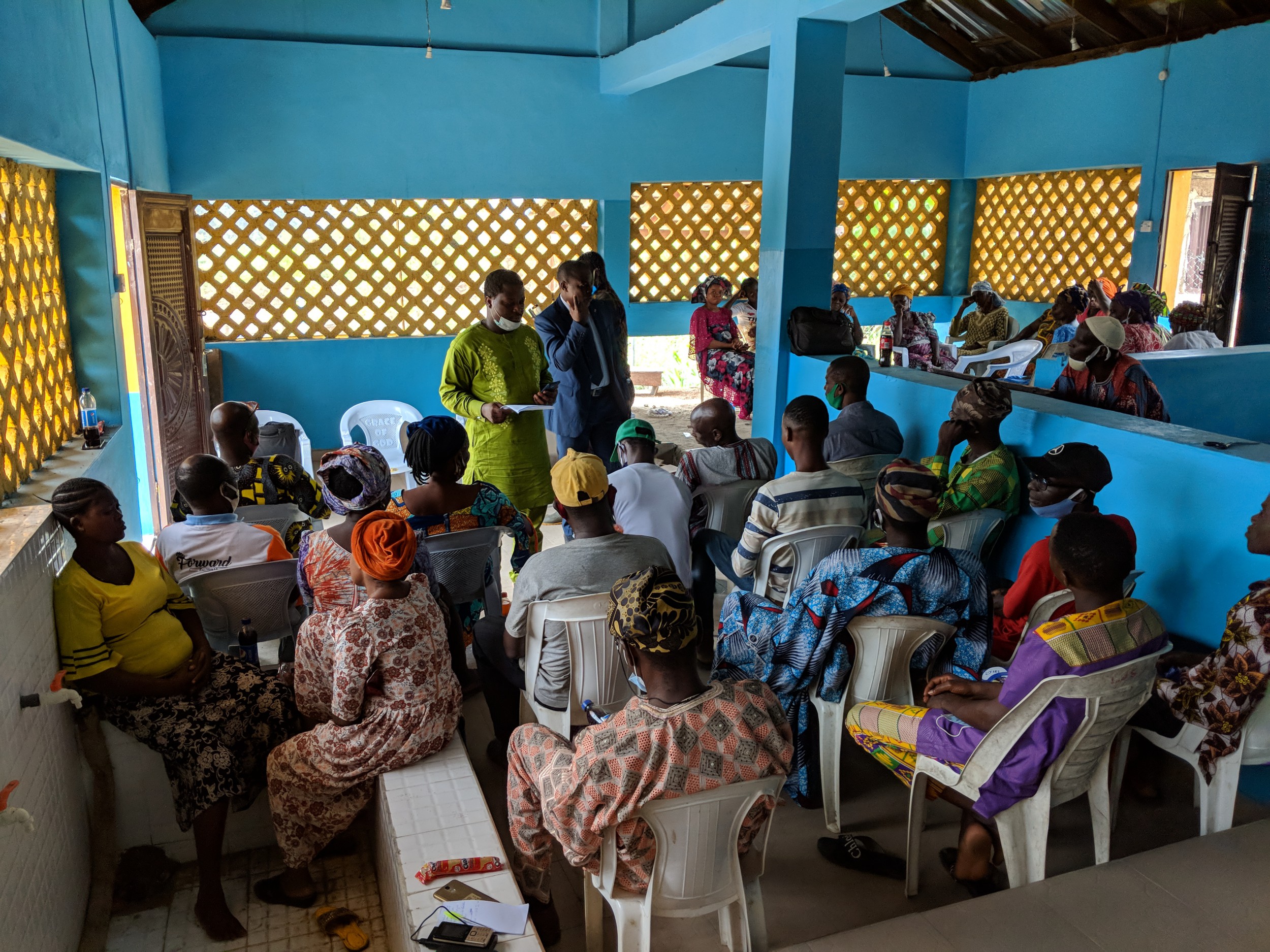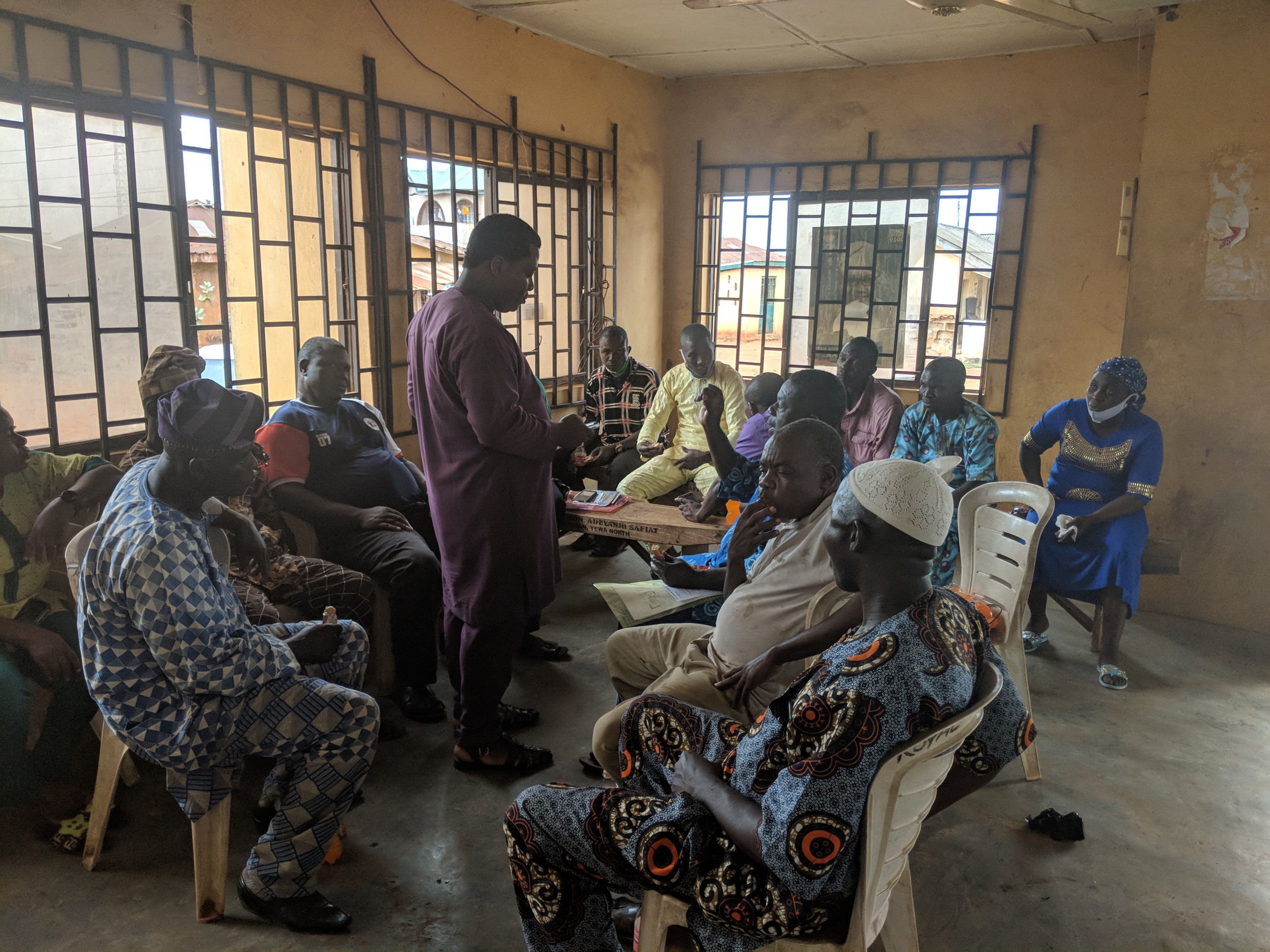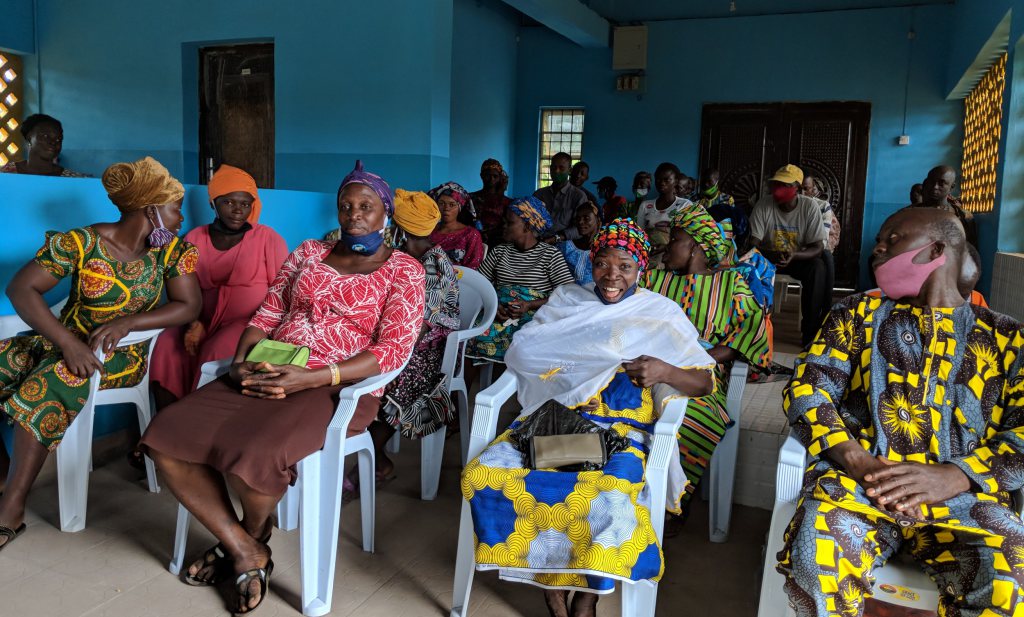Agriculture won't step up production if farmers are afraid of their lives and their livelihood. There is an urgent in Nigeria need to identify the main causes of insecurity, address the issues, and ensure that strong systems are out in place to avoid future occurrence, says Babatunde in this week's letter to his farmers.
Achieving food security is the desire of all nations, and is hinged on continuous planning in improving the food system. This is one of the sustainable development goals: that by 2030, all people, at all times, have physical, social, and economic access to sufficient, safe, and nutritious food that meets their food preferences and dietary needs for an active and healthy life (United Nations’ Committee on World Food Security).
Agriculture cannot work for us all in a hostile environment where farmers are afraid of their lives and their livelihood. There is an urgent need to identify the main causes of insecurity, address the issues, and ensure that strong systems are out in place to avoid future occurrence. Also, relevant agricultural stakeholders should collaborate with the government in providing guidance for palliative distribution for farmers, especially smallholder farmers, to reduce the impact of COVID-19. This will serve as a short term measure and also develop a long term policy to help improve agricultural productivity towards achieving food security.
There is no better day than now to rise to the needs of the farmers in creating an enabling environment to thrive for sustainable growth.
Yours-in-Service
Babatunde Olarewaju
In his weekly column Letter to my Farmers, Babatunde Olarewajo writes about personal experiences and insights on farming, curated through working with smallholder farmers in Africa. Last week's letter is available here.



Agriculture cannot work for us all in a hostile environment where farmers are afraid of their lives and their livelihoodIn Nigeria, to achieve this goal by 2030 is quite impossible, as factors such as insecurity, high food inflation, weak food distribution system and COVID-19 lockdowns have impacted the food system. For instance, insecurity is a big threat to production as many farmers have abandoned their farmlands to avoid being kidnapped or killed by terrorists in some farming communities. This has affected the volume of food available, and has largely contributed to food inflation (which stood at 20.57% in January 2021).
Agriculture cannot work for us all in a hostile environment where farmers are afraid of their lives and their livelihood. There is an urgent need to identify the main causes of insecurity, address the issues, and ensure that strong systems are out in place to avoid future occurrence. Also, relevant agricultural stakeholders should collaborate with the government in providing guidance for palliative distribution for farmers, especially smallholder farmers, to reduce the impact of COVID-19. This will serve as a short term measure and also develop a long term policy to help improve agricultural productivity towards achieving food security.
There is no better day than now to rise to the needs of the farmers in creating an enabling environment to thrive for sustainable growth.
Yours-in-Service
Babatunde Olarewaju
In his weekly column Letter to my Farmers, Babatunde Olarewajo writes about personal experiences and insights on farming, curated through working with smallholder farmers in Africa. Last week's letter is available here.







I don't share in the philosophy of subsidizing smallholder farmers for long, it is a short palliative measures and SHFs should grow beyond being small into a business entity, where they can mobilize themselves for changes.
Also, many times, the government needs to protect the farmers from import especially when they are competitive. Most times, they use tariff to control the activities. It has both its benefits and disadvantages. It all depends on the situation surrounding such issue. Protection is a sword-edged sword, and it depends on how it is handled to how where it swings to.
From my LinkedIn posts:
There’re a lot discussion points in this post. Buth the emphasis is on subsidizing small holders. But stating in the same article that there’s a huge market potential regarding the Chinese and the domestic market, what are we going to subsidize then? Subsiziding has to come with a (development) strategy. The growth in production it self, could be based on increased demand at all. The subsidy needs to be focused on enabling the growth (e.g. education) and on structuring the supply and it’s network. The issue is not the smallholder, it’s the complete governance around it. In the end the smallholder will just farm along...
it’ll need a structured approach, this is not something to be solved on a Sunday afternoon. And probably we also haven’t got all the different aspects at hand. But it also needs a community willing to structure and tackle the issues. This requires more than people liking comment, this will require comments and actions to be taken.
The challange is not only the budget and also not only the public side. Maybe it’s even impossible for several reasons to solve this issues only from top down. This has to be partnerd from a bottom up approach (as you’re now doing). Let’s not alone focus on the big picture, but also make small steps. Don’t go for all the roads at once, but let’s get started at one road, or one logistical cluster and set example.
this challenge probably needs a new framework for governance. An example:
http://www.participatorysystems.nl
#4 @Coen. Yeah, not only smallholders in the Netherlands and I did not really mean that.
Responding to the rest of the comments by discussants, #Babatunde #Hugue and #Dick, whose submissions align logically from an agro-economic dimension, that issues confronting agriculture sector growth in Nigeria and SSA are numerous. Problem of logistics, incessant/illegal fee payments to road-side armed men, as well as other problems associated with transportation of food and agro commodities from one state to another, one province to another, one region to another and from rural areas to urban centres. That takes us to the question if stakeholders of Africa's growth and development (either resident in Africa or in the diaspora) are ready to co-operate and collaborate to improve the concerns of her agriculture and agribusiness sector. Apparently, it behoves on the key players, government stakeholders and persons subsisting in the critically affected regions that these bottlenecks pose a significant problem to intra African trade operations which the AfCFTA and governments of Africa are at the moment, deploying strategies on how to tackle. However, questions surrounding confidentiality and managing information among the players is also an issue that could affect the agriculture sector. Other constraints include language barriers and legal frameworks as trade negotiations are herculean when done virtually, which is what the WTO is equally supportingi. Transhipment procedures, among other constraints which are identified as debilitating by the African Union in line with the AfCFTA and WTO agreements is being reviewed to favour Africa's agriculture sector even with the slow responses of some African nations in signing of the contract, as well as trade tariffs reduction. No doubts, we hope that African governments through their Agriculture Ministers and Commissioners, and the international community will partner with the WTO as led by her DG, Dr Ngozi Iweala (nee Okonjo) and Secretary General, AfCFTA, His Excellency, King Wamkele Mene in setting the stage for effective and efficient system for the agriculture sector. Indeed, production (farming activities and cultivation) is incomplete untill it gets to the hand of the end users and that is the trade dimension (international or global trade) to it of which the intra African trade is the element championed by the AfCFTA.
#9 Dick, this over simplifies the protection from imports.
Rather specific measurements for protection of farmers development regarding imports should be possible.
And maybe sometimes the pressure coming from imports might be even positive for farmers development...
Coen, so let's make it simplex again. The baseline sounds like this:
if a society wants to step up agricultural production, you need:
- a policy in the common interest
- to protect that activity from imports that can blow it away because of significantly lower prices
- to create an understanding and agreement with foreign business partners in your mutual interest
Babatunde Olarewaju and Hugue Nkoutchou, do you share that way of thinking? Or - as can very well be the case - is that a foreign perspective on the role of government?